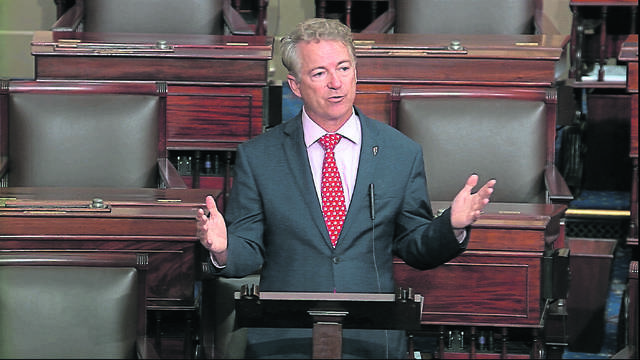A worldwide medical crisis requires you to trust others and use common sense in a way that can sometimes be hard for us. Especially when the two ideas are at odds and it’s up to us all to make smart decisions.
If we ignore the good advice — or exercise bad judgment — in the coronavirus pandemic, the results could be much more immediate and widespread.
Sen. Rand Paul of Kentucky announced on Sunday he is positive for coronavirus. According to The Washington Post, there were six days between when he was tested and when he went into quarantine after learning the results. In the days between, he kept going to work at the Capitol every day, potentially exposing other officials, staff and more.
Paul could not have been unaware of the recommendations for self-quarantine. Other members of Congress and the administration have taken those steps. He participated in key votes on the pandemic. And even if all of that wasn’t true, Paul is a medical doctor. He should have understood the dangers and accepted the advice. He did not.
A man in Phoenix was not a doctor. He and his wife, both in their 60s, heard that chloroquine could be used to treat the disease and maybe even stave it off. They found something in their house with that name — chloroquine phosphate, a chemical for cleaning a fish tank. They took it. The husband died.
Paul isn’t the only one shrugging off official recommendations for keeping distance in the pandemic. State police have issued 27 warnings in Pennsylvania to those that haven’t followed Gov. Tom Wolf’s order to shut down the physical operations of non-life-sustaining businesses.
The couple in Phoenix aren’t the only ones grasping at the straws of a cure. Since President Trump brought up chloroquine and hydroxychloroquine in a recent press conference, the pharmaceutical forms used to treat malaria, rheumatoid arthritis and lupus have been scooped up by people without those diseases, despite doctors cautioning that the drugs are untested on coronavirus and any results thus far are anecdotal.
We need to listen to things that make sense, like the simple reality of keeping your distance and policing your germs.
We also need to hold back from things that are giant question marks. While politicians are good sources when it comes to public policy and response, we have to look to doctors and scientists when it comes to the disease itself. The virus will not respond to optimism and marketing strategy.








